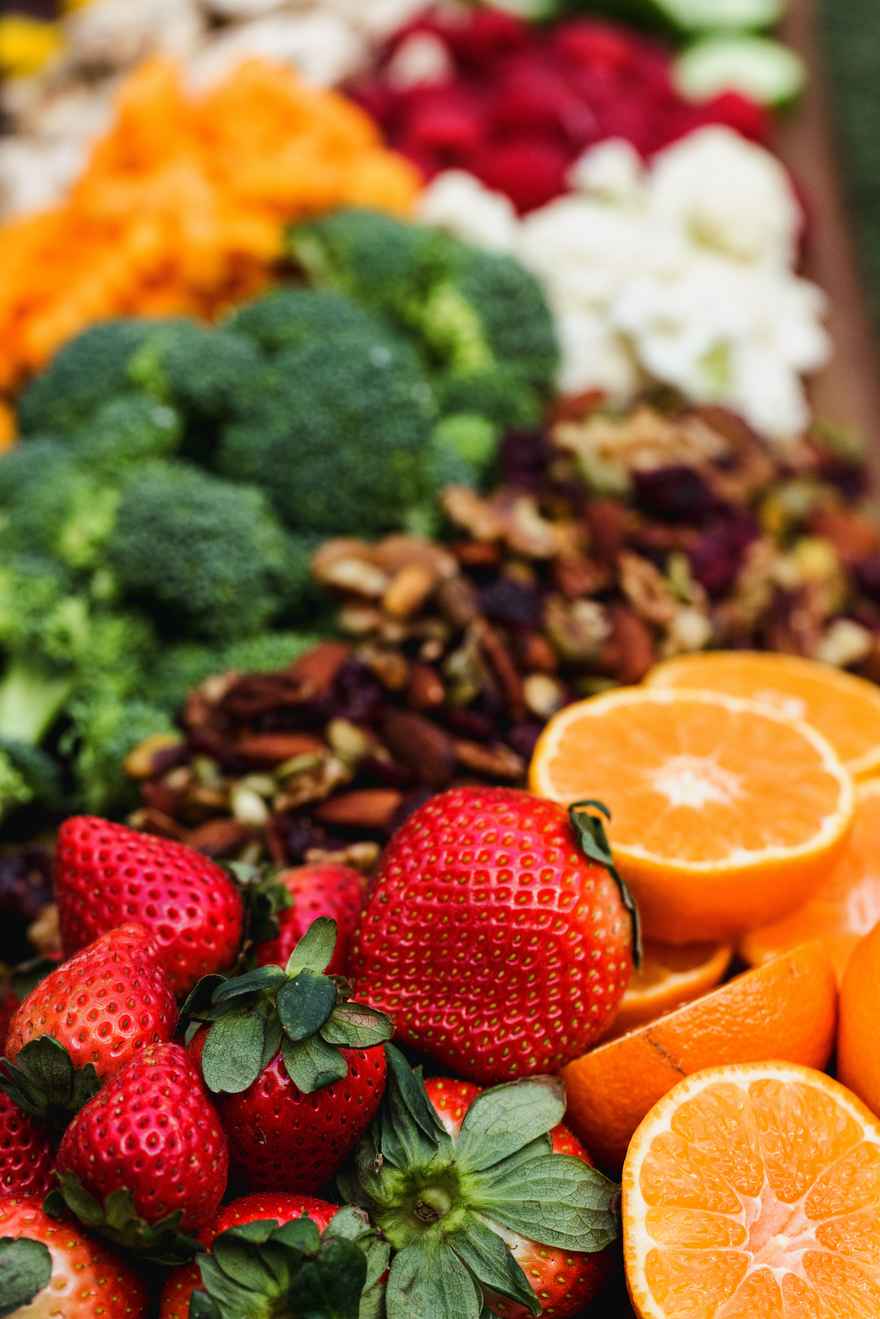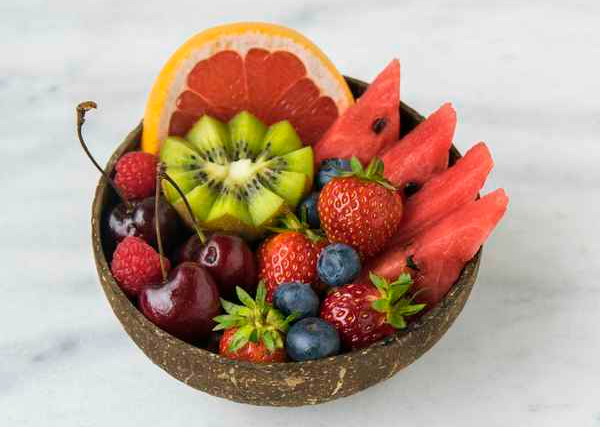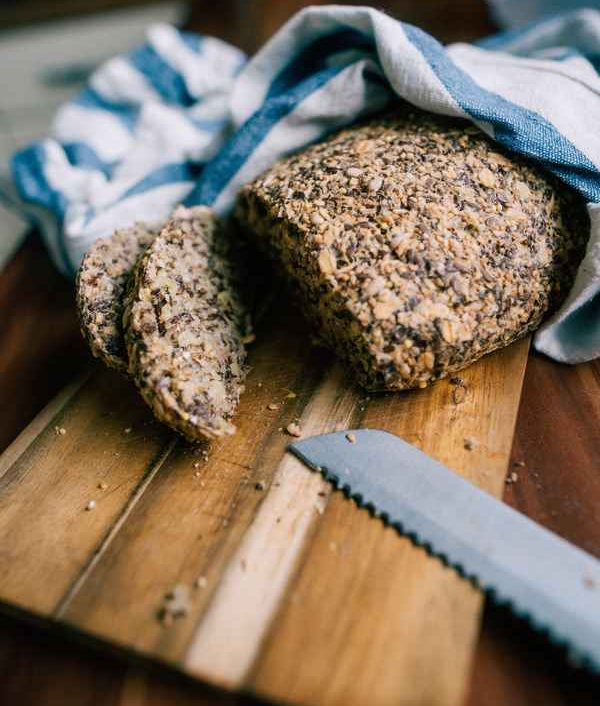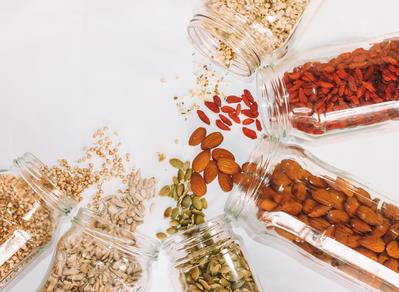
Dietary Fiber - What's the Big Deal?

When we divide food into "macronutrients," we think of fat, protein and carbohydrates. These are the larger nutrient categories that nutritionists and dieters like to evaluate and dissect searching for some magic ratio. The latter of the three, carbohydrates, has gotten a bad rap over the past few years, with many people thinking that any carbohydrate is bad for you. In fact, carbohydrates are absolutely essential to the body's key processes. The important thing is to know which type of carbohydrate you are ingesting.
Dietary fiber is a non-digestible carbohydrate that originates from plant-based foods. Carbohydrates are typically broken down into sugars during digestion. However fiber is the part of a plant that can't be broken down by the body, and passes through relatively unchanged, helping to promote detoxification and keeping things “moving” in the digestive tract.
Fiber found in whole foods is divided into two categories: Soluble and Insoluble.
Soluble Fiber typically comes from the inner flesh of fruits and vegetables.
 It dissolves in water, turning into a gel in the digestive tract.
It dissolves in water, turning into a gel in the digestive tract.
Soluble fiber in your diet can:
- Improve heart health by regulating cholesterol levels
- Reduce blood pressure
- Improve blood glucose levels
- Improve digestion
- Promote gut health, supporting healthy hormone production
Insoluble Fiber does not dissolve in water as it passes through the body.
It adds bulk to digested food products, decreasing constipation.
 |
There are many other benefits of insoluble fiber:
|
People with high intakes of dietary fiber appear to have an exceptionally lower risk for developing coronary heart disease, stroke, hypertension, diabetes, obesity, and certain gastrointestinal disorders.
Dietary fiber is essential for homeostasis (balance) within the gut. The most significant health benefits extend to enhanced metabolic performance, including protection against obesity and related metabolic diseases like diabetes and high blood pressure. Because fiber helps regulate the body's use of sugars - it keeps hunger and blood sugar in check, and it feeds the good bacteria in the microbiome - it is responsible for multiple health benefits and critical processes within the body. It is essential for optimal health and longevity.
Processed foods - think white bread, plain pasta, pressed/strained vegetable juices have had their fiber removed. People are consuming more ultra-processed foods void of dietary fiber.
This lack of focus on the foods we eat has led to deficiencies in dietary fiber across much of the American population.
Only about 10% of the population gets the recommended daily intake of dietary fiber, which is about 25-40 grams per day depending on age.
The easiest way to boost dietary fiber intake is by adding more vegetables, fruits, and whole grains to your plate!
Look for "Whole Grain ____ " as the first ingredient in baked goods, breakfast cereals and pastas to improve fiber intake. Even if a label says "Whole Wheat," if the first ingredient isn't "Whole Grain Wheat," it's missing some essential fiber.
The best and most readily available sources of fiber are nuts, fruits and vegetables, legumes, and whole grains. Many processed foods will have fiber added, and while this is better than nothing, it is NOT the same as getting fiber directly from the foods you eat.
Whole food sources are obviously the best way to consume dietary fiber, but some minimally processed foods still have plenty of fiber in their natural state.
The easiest way to know if your food has gut-friendly, hunger crushing dietary fiber: ask yourself, "is it a plant?" If the answer is yes, it probably does!
You can get the most bang for your buck with these TEN whole foods rich in both soluble and insoluble fiber!
Food Sources of Fiber include:
1) Beans: black, kidney, white, lima, edamame
2) Avocado
3) Green Peas
4) Pears with skin
5) Lentils
6) Apples with skin
7) Flax seeds
8) Sweet Potatoes
9) Dried figs, prunes, apricots & dates (watch for added sugars)
10) Passionfruit
How will you start adding more gut-healthy fiber to your day to increase your energy and longevity?
Looking for an easier way to add the amazing wellness benefits of fiber to your diet without all the research and work?
Try our Meal Planning Service!
We create custom meal plans to fit your health and wellness goals, to help you spend less time meal planning and in the kitchen, and more time living your life!

0 comments
Leave a comment
Please log in or register to post a comment